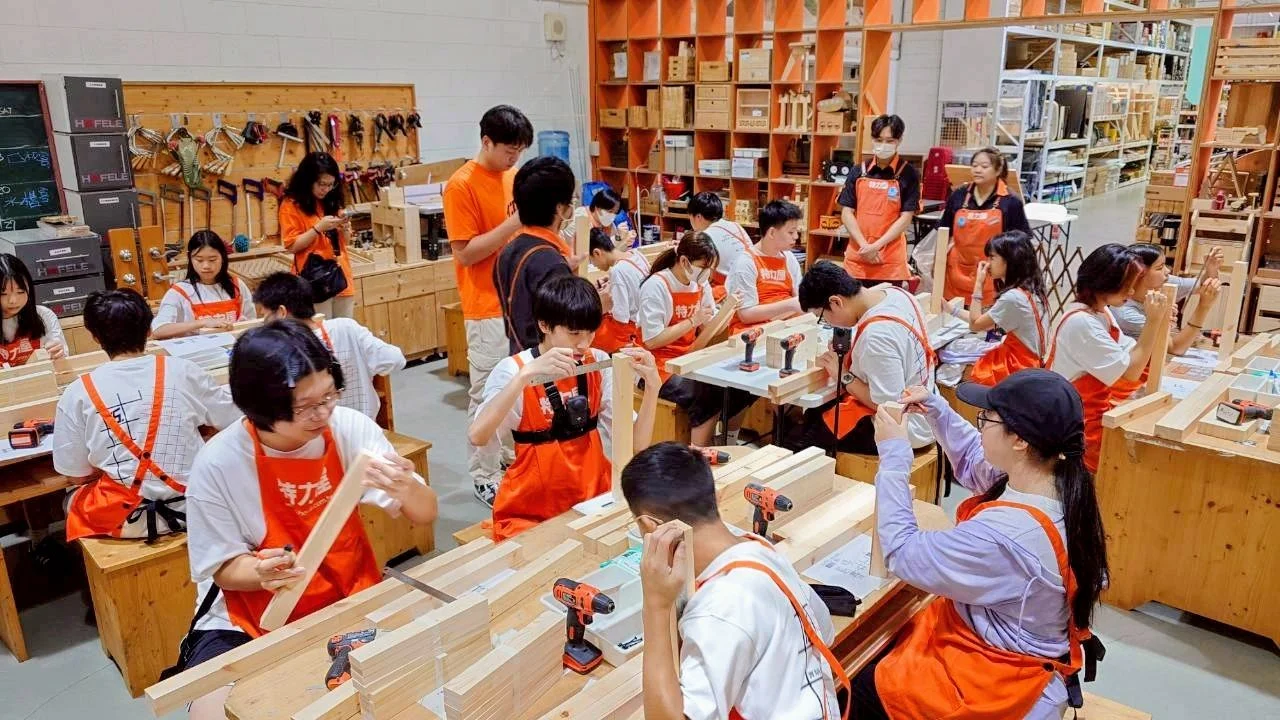5IN Opens with Full Enrollment with the Mission of Competency-Orientated Education to Meet Future Needs
The 5IN Experimental Education Autumn 2025 semester officially began with full enrollment, the educational team focusing on “Competency-Oriented Education” as its core philosophy, integrating interdisciplinary projects and situational hands-on practice, emphasizing starting from life and addressing the real issues. This approach responds to parental concerns such as “cultivating practical abilities” and “future societal trends”, aiming to establish verifiable learning achievements demonstrating both knowledge and ability.
Thank You for Your Support of the 5IN Mission!
Thank You for Your Support of the 5IN Mission!
Implementing Competency-Oriented Learning: From Situational Tasks to Public Presentation
The 5IN Experimental Education semester curriculum covers inquiry-based projects, linguistic expression, scientific and humanistic literacy, application of technology, and team collaboration, encouraging students to practice asking questions, perform data collection, utilize systemic thinking, and communication and expression in real-world tasks. Executive Director Scott Chen (陳子驊) emphasizes "competency", the transformation of academic knowledge into the capacity for practical implementation and decision-making when facing real situations. This allows students to learn by doing, develop a sense of responsibility through cooperation, and verify their learning process through methods such as public presentations and exhibitions of learning, further promoting self-reflection and motivation for continuous improvement.
Mr. Chen further noted that besides school, education needs to bring learning back to life situations, allowing children to understand "the relationship between this learning and the self". Therefore, 5IN Experimental Education aligns its curriculum design with local communities, public issues, and industry practice, enabling students to face practical constraints and user needs, cultivating skills in observation, empathy, and innovation. He pointed out that this path helps children continue effective development, even in a changing environment, which is the style of learning parents expect to see.
Home - Society - Institution Cooperation and Student Portfolios Make Results Visible
Institute Director Dr. Yu Lee (李有誠) noted that facing future educational and global trends, digital literacy and interdisciplinary integration are indispensable. 5IN Experimental Education uses projects as the main axis, progressively introducing data processing, presentation and oral expression, collaboration tools, and basic technology application. Through home-school co-learning and development portfolio documentation, each student's trajectory of development can clearly be seen. He emphasized that 5IN assessment prioritizes both the process and outcome of student work equally, including problem definition, process reflection, and final output, establishing a sustained corrective learning loop.
Focusing on Growth in Every Step: Process Based Learning
In addition to emphasizing competency, another main focus at 5IN is Process Based Learning. The curriculum follows the flow of "Production - Feedback - Correction - Adjustment", allowing students, through every adjustment, to transform knowledge into problem-solving capability that is practical, applicable, and verifiable by social context, rather than focusing solely on test answers.
Dr. Lee added that 5IN learning focuses on "path" of student learning and production. Through phased checklists, peer review, documented reflection, and public presentations, the evidence of each student’s development is clearly visible. Parents can also see how their child deals with constraints, utilizes resources, and forms strategies and viewpoints, which constitutes sustainable self-development.
2025’s full enrollment can be seen as an affirmation by families and society of the path of experimental education and competency education. The 5IN Experimental Education team will continue to incorporate or findings of student learning performance and parent feedback, making rolling adjustments to curriculum depth and pace. Simultaneously, we will expand collaborations with the community, public welfare organizations, and industry, enabling students to further face challenges and problems and proposing solutions in the real world, accumulating learning outcomes that can be verified and valued by all of society.




